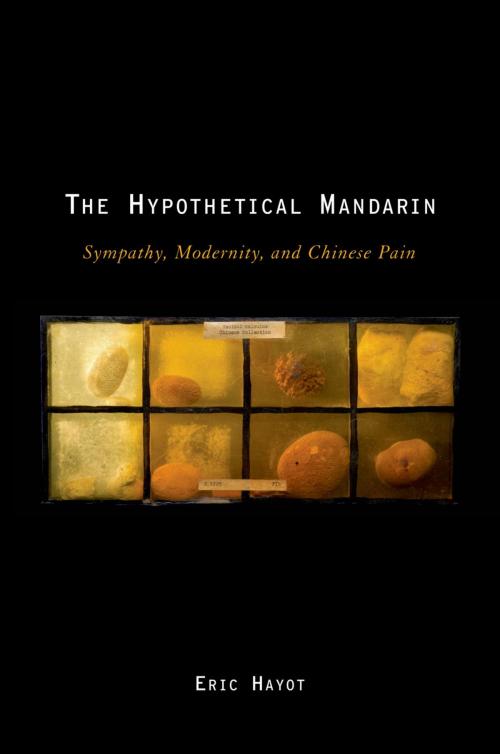The Hypothetical Mandarin
Sympathy, Modernity, and Chinese Pain
Nonfiction, Social & Cultural Studies, Social Science, Cultural Studies, Ethnic Studies, Anthropology, Fiction & Literature, Literary Theory & Criticism| Author: | Eric Hayot | ISBN: | 9780199888573 |
| Publisher: | Oxford University Press | Publication: | April 24, 2009 |
| Imprint: | Oxford University Press | Language: | English |
| Author: | Eric Hayot |
| ISBN: | 9780199888573 |
| Publisher: | Oxford University Press |
| Publication: | April 24, 2009 |
| Imprint: | Oxford University Press |
| Language: | English |
Through readings of novels, medical case studies, travelers' reports, photographs, and paintings, The Hypothetical Mandarin shows that in the West the connection between sympathy and humanity, and indeed between sympathy and reality, has tended to refract with a remarkable frequency through the lens called "China." Eric Hayot, through keen interpretations of myriad art forms and nonfictional writings, reveals how Western responses to Chinese pain go to the heart of the relationship between language and the body, the social and philosophical experience of modernity, and the definition of a universal human subject. In short, this analysis reveals how four terms--sympathy, suffering, economic exchange, and representational exchange--establish the network that frames the historical discourse on China, sympathy, and modernity. It is a book that opens new possibilities for thinking about the West's relationship to China, past and present, and that establishes a new philosophical vantage from which to consider the question of empathy.
Through readings of novels, medical case studies, travelers' reports, photographs, and paintings, The Hypothetical Mandarin shows that in the West the connection between sympathy and humanity, and indeed between sympathy and reality, has tended to refract with a remarkable frequency through the lens called "China." Eric Hayot, through keen interpretations of myriad art forms and nonfictional writings, reveals how Western responses to Chinese pain go to the heart of the relationship between language and the body, the social and philosophical experience of modernity, and the definition of a universal human subject. In short, this analysis reveals how four terms--sympathy, suffering, economic exchange, and representational exchange--establish the network that frames the historical discourse on China, sympathy, and modernity. It is a book that opens new possibilities for thinking about the West's relationship to China, past and present, and that establishes a new philosophical vantage from which to consider the question of empathy.















